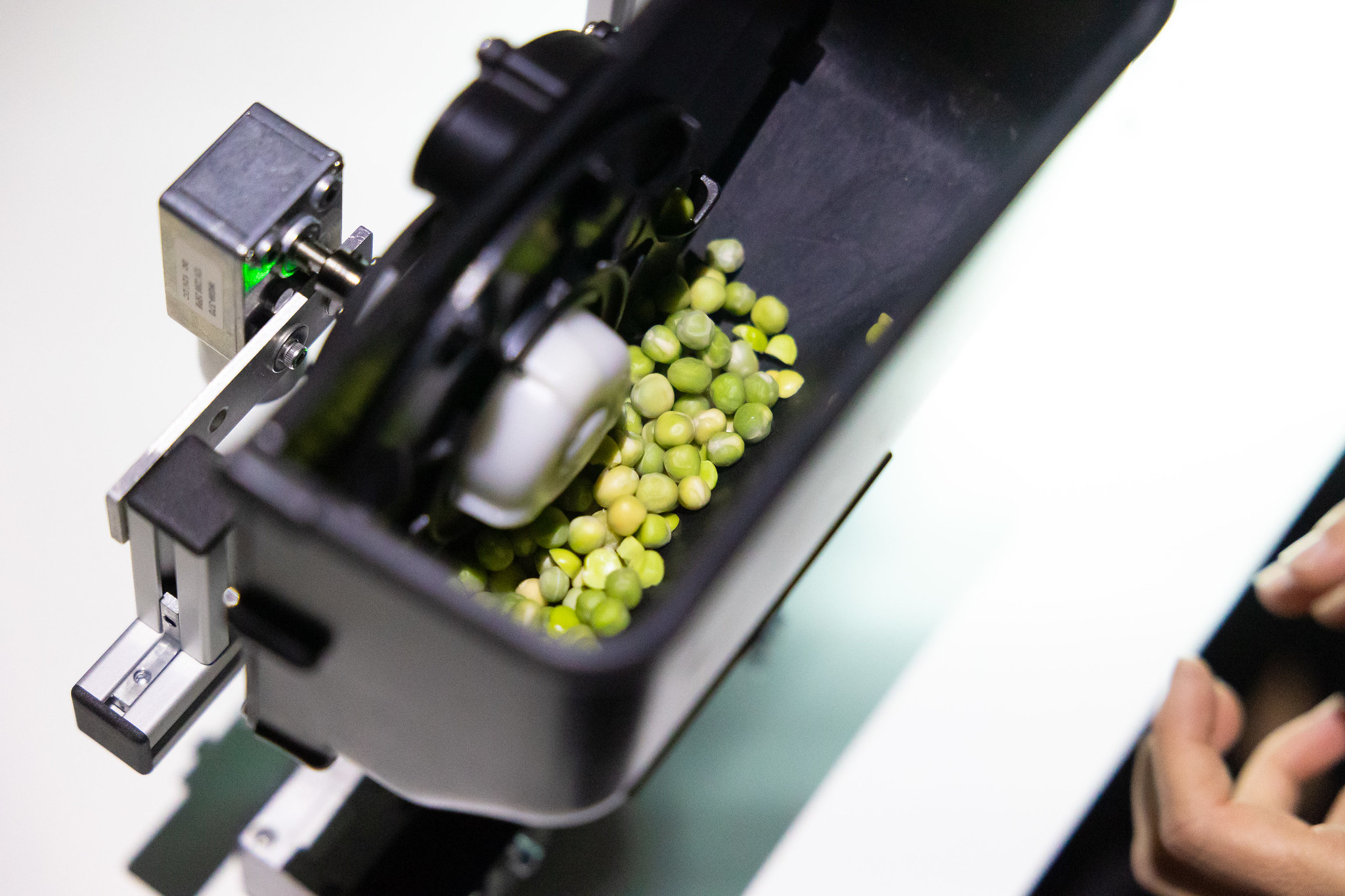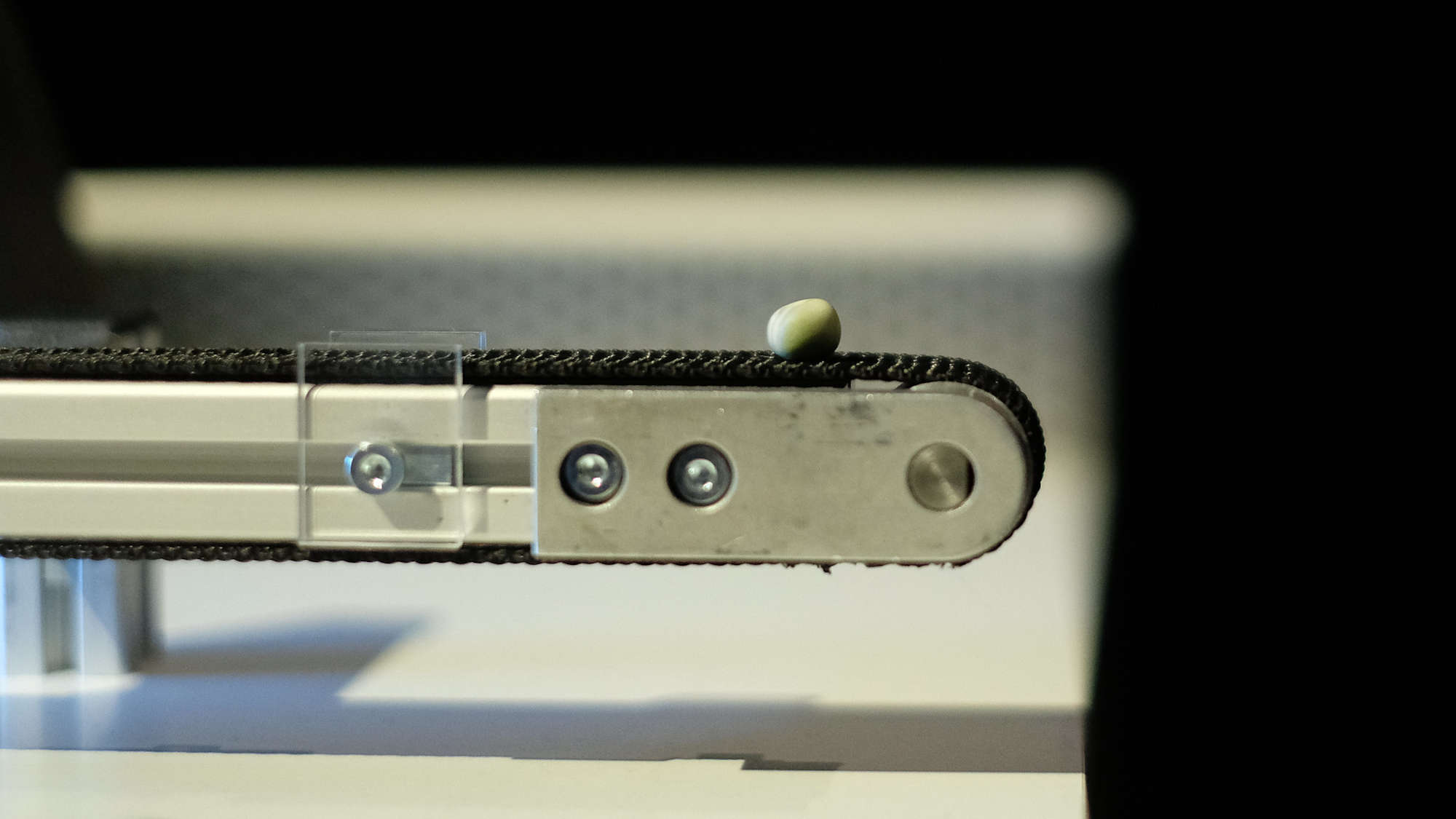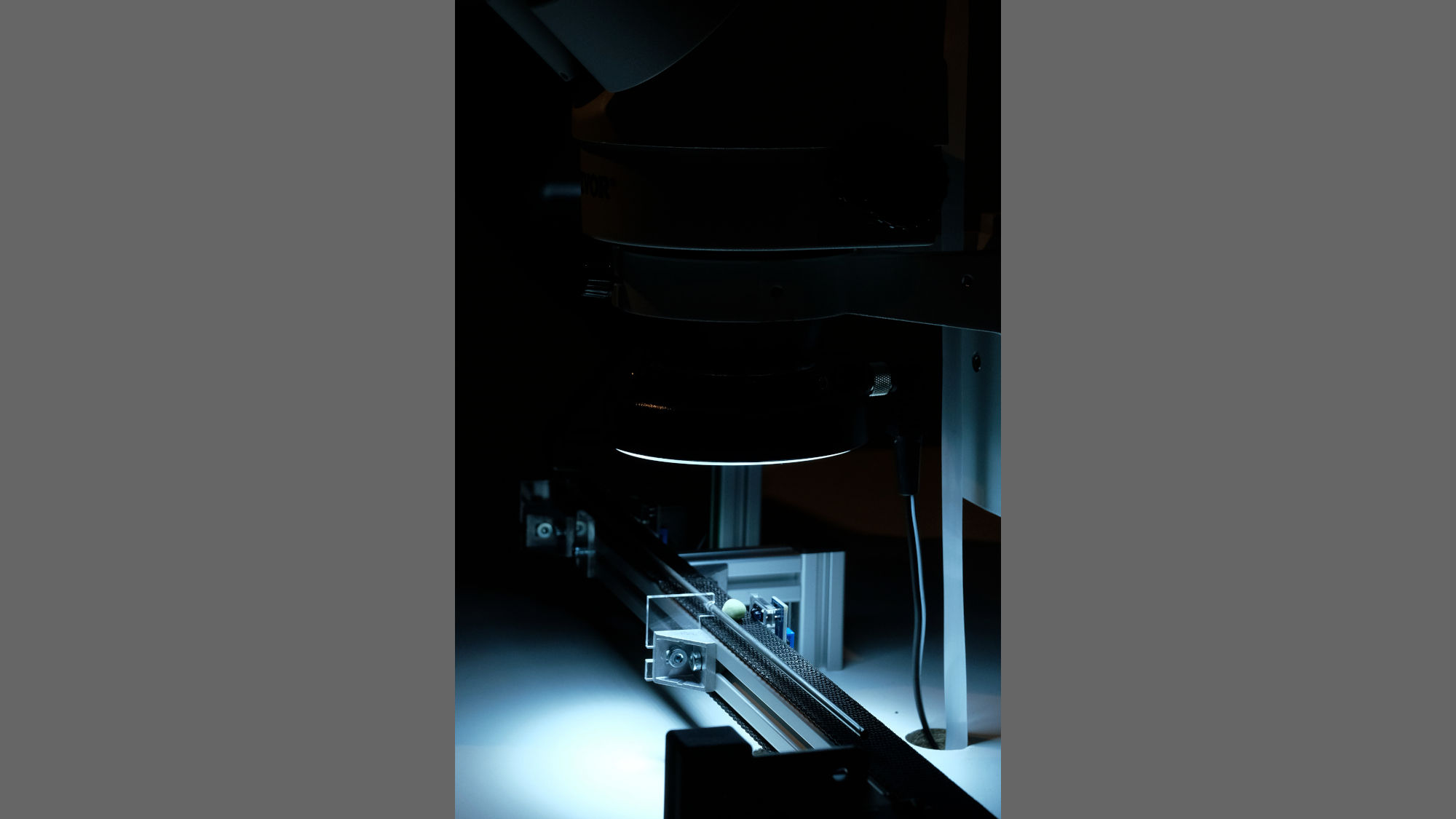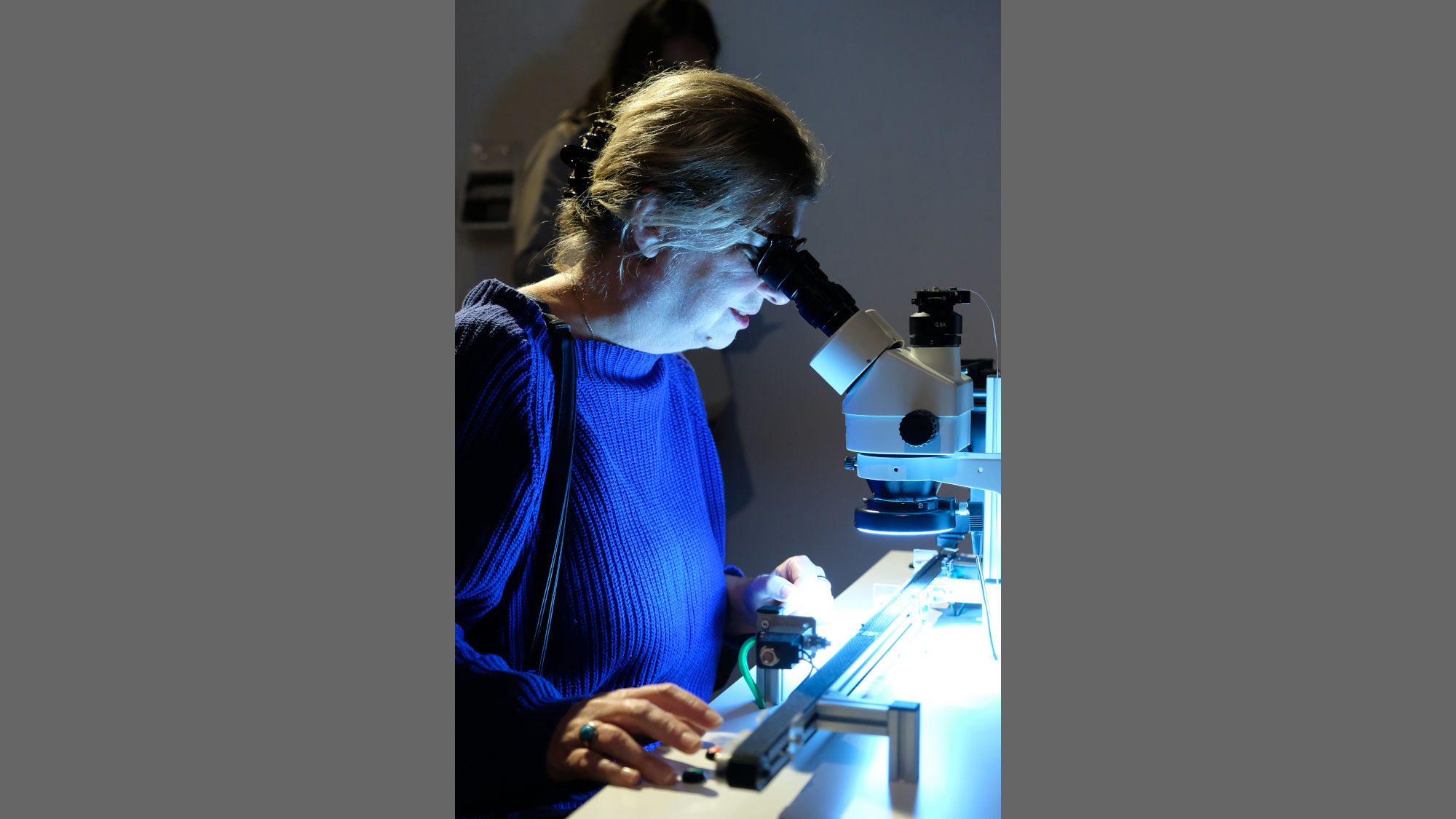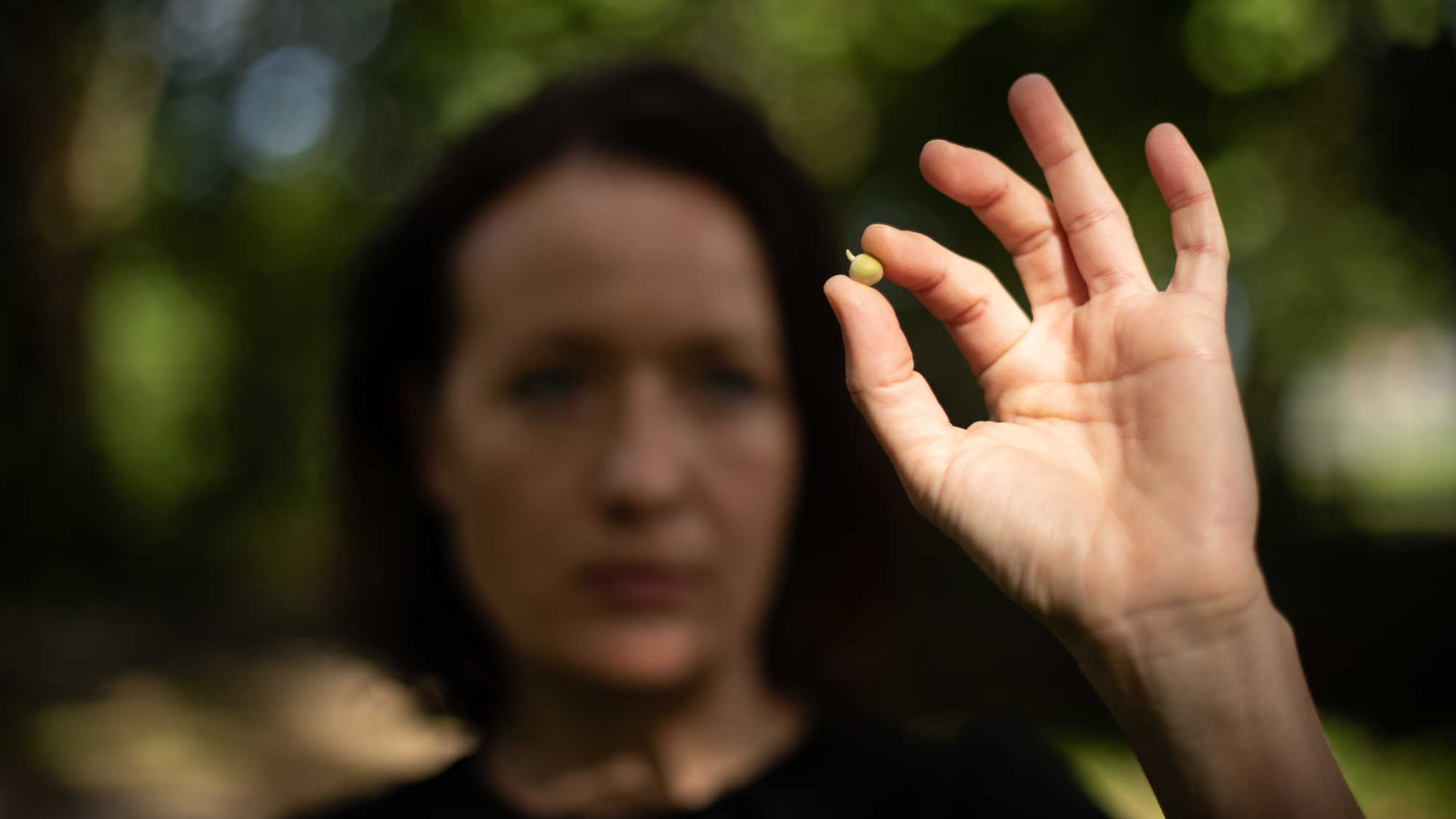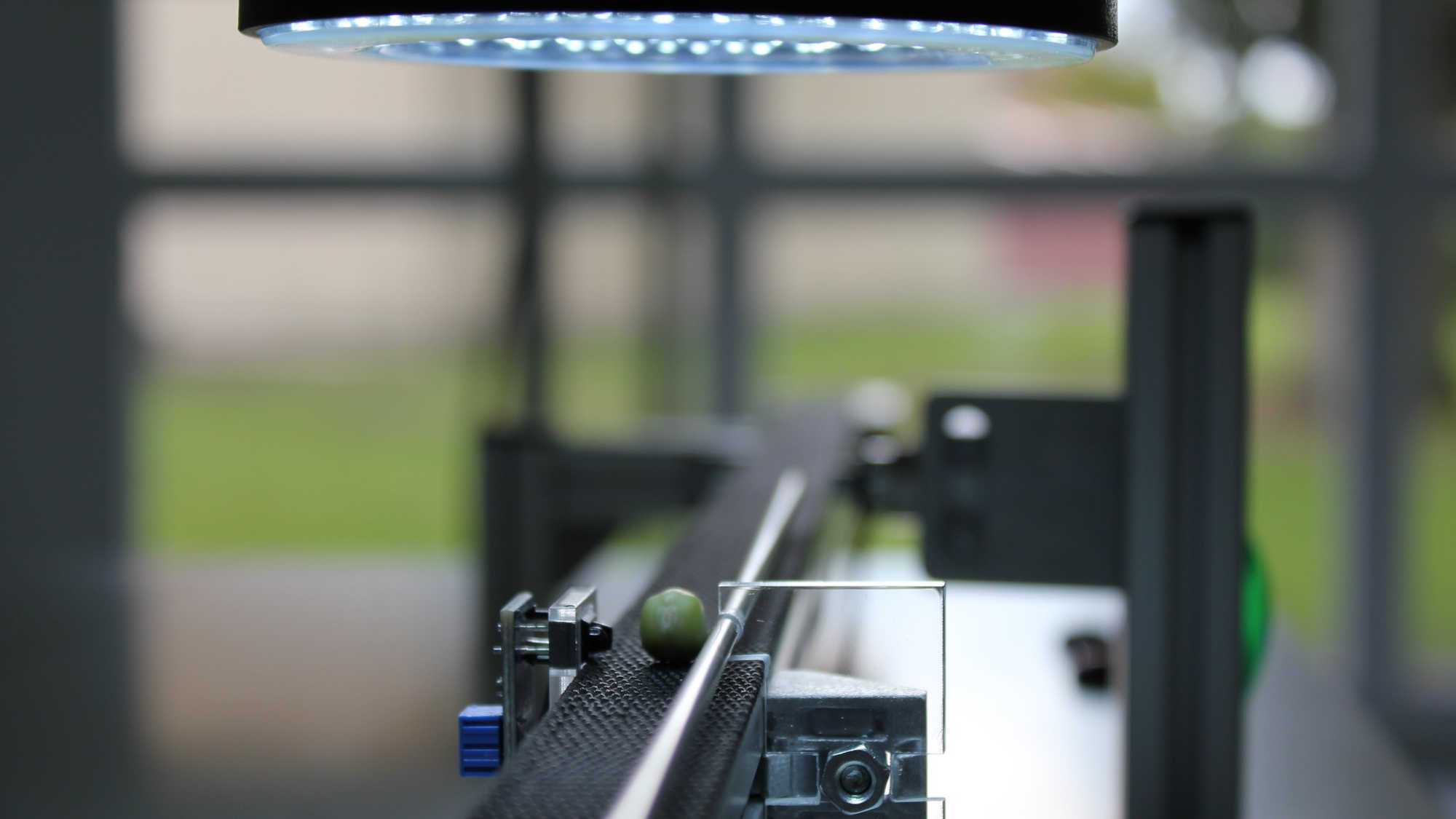Artificial Intelligence & Life Art
Honorary Mention
“The good ones go into the pot, the bad ones go into your crop.” That’s how the story goes in Cinderella. But who actually decides what’s good and bad?
Using a feeding mechanism and a conveyor belt, the “EZ Quality Sorter V2”, part of the ERBSENZÄHLER (EN: bean counter; lit.: pea counter) project, automatically separates, analyzes, and sorts pea seeds into good and poor quality. Visitors visually inspect the peas one by one through an optical device. With each button press, the machinery takes a close-up picture of the respective pea and, according to the user’s selection, adds it to an image database. Once the user leaves the station, the machine automatically continues the sorting process based on the previous user inputs.
Today’s “intelligent” systems often run on invisible human labor and subjective decision-making processes that have been crystallized into hard facts through formalization and automation. When the machine appears autonomous, one easily assumes that its decisions are neutral, objective, and rational. However, when one becomes the decision maker, one quickly finds oneself on shaky ground. Classifying a complex world and reducing it to pregiven binaries turns out to be a vague, troubling, and even violent endeavor.
Jury Statement
Verena Friedrich’s installation, the EZ Quality Sorter V2, raises questions about decision-making processes and the delegation of those processes to intelligent systems. The installation presents a sorting plant where pea seeds are separated, analyzed, and categorized as good or poor quality. In the training mode of the installation, visitors are invited to participate in the decision-making process. They sit by a conveyor belt and assess the quality of the peas, categorizing them as either “good” for further processing or “bad” —sending them to the reject bin. The decision-making process is recorded, capturing the results for future reference. Once enough data have been gathered, the EZ Quality Sorter V2 autonomously continues the selection process based on this information. This automation reflects the growing trend of delegating complex decision-making to intelligent systems and Friedrich’s installation raises thought-provoking questions about this, and about the impact of mathematical-technical systems on our understanding of the world we live in.
Excerpt from the jury statement
Credits
With support from: Arts Foundation of NRW, Künstlerdorf Schöppingen Foundation
Verena Friedrich (DE)
Verena Friedrich (DE) is an artist and assistant professor at the Academy of Media Arts Cologne (KHM). Her time-based installations blend organic, electronic, and sculptural media, and explore the possibilities and limits of technological intervention and control. Her works have been featured in exhibitions, media art festivals, and conferences around the world. She has received several awards and grants for her projects, including an EMARE grant, a work stipend from Kunstfonds Foundation, and the International Media Award for Science and Art from ZKM Karlsruhe.
